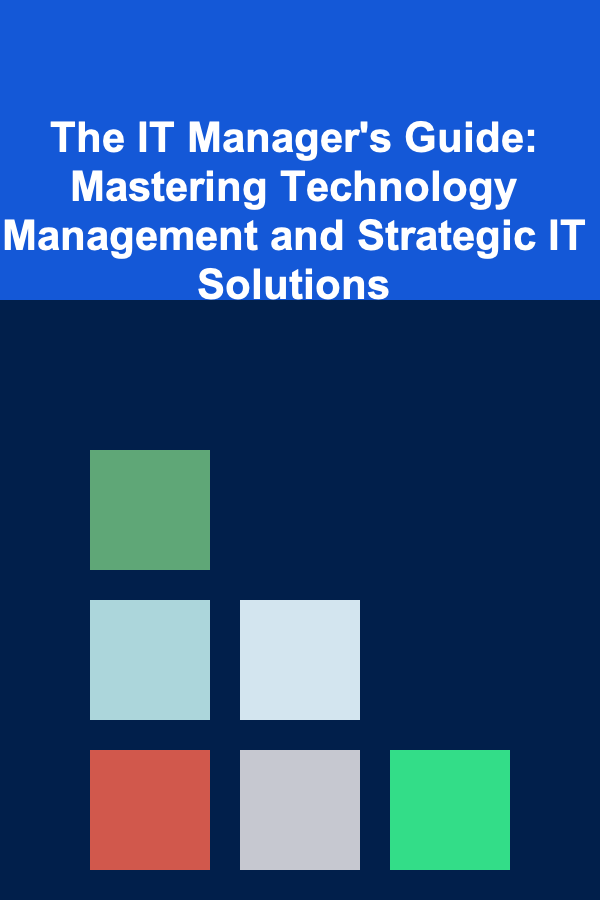
Beginner Guide: The Fundamentals of Digital Marketing
ebook include PDF & Audio bundle (Micro Guide)
$12.99$11.99
Limited Time Offer! Order within the next:

In the digital age, marketing has evolved beyond traditional methods like print advertisements or TV commercials. Digital marketing is now a necessity for any business, whether it's a small startup or a large corporation. It provides businesses with the tools and platforms to reach their target audience in a more direct, personalized, and cost-effective manner.
For beginners, digital marketing can seem overwhelming because of the variety of platforms, strategies, and tools available. However, once you understand the key fundamentals, it becomes easier to navigate. In this guide, we'll break down the essential aspects of digital marketing and provide you with actionable insights to help you start your journey.
What is Digital Marketing?
Digital marketing refers to the use of the internet, digital technologies, and online platforms to promote and sell products or services. Unlike traditional marketing, which focuses on offline methods like print ads and billboards, digital marketing relies on tools like social media, search engines, email, and websites to connect with consumers.
The goal of digital marketing is to reach a targeted audience through various online channels, engage them with valuable content, and eventually drive conversions or sales.
Key Channels of Digital Marketing
Digital marketing is a broad field, but it can be broken down into several key channels. Each channel serves a unique purpose, and using them together effectively can maximize your marketing efforts.
1. Search Engine Optimization (SEO)
SEO is the process of optimizing your website and content to rank higher in search engine results, such as Google. The higher your website ranks, the more likely it is that people will visit your site. SEO is crucial because most online experiences begin with a search engine.
Actionable Tips for SEO:
- Keyword Research: Start by identifying the keywords your target audience is searching for. Use tools like Google Keyword Planner, Ahrefs, or SEMrush to find relevant keywords.
- On-Page SEO: Ensure your website is optimized for both search engines and users. This includes optimizing page titles, meta descriptions, headers, and content.
- Technical SEO: Make sure your website is easy for search engines to crawl and index. This includes improving site speed, ensuring mobile-friendliness, and fixing broken links.
- Content Quality: Create high-quality, relevant, and valuable content. Google rewards websites that provide useful, well-researched information.
2. Content Marketing
Content marketing involves creating and sharing valuable, relevant content to attract and engage your target audience. Content can take various forms, such as blog posts, videos, infographics, podcasts, or eBooks.
Actionable Tips for Content Marketing:
- Understand Your Audience: Research your audience's needs, preferences, and pain points. Create content that addresses these topics.
- Consistency is Key: Develop a content calendar to publish regularly. Consistency helps you stay top-of-mind and improves your chances of ranking in search engines.
- Repurpose Content: Repurpose high-performing content into different formats. For example, turn a blog post into a video or infographic to reach a broader audience.
- Use Calls to Action (CTAs): Every piece of content should have a clear call to action, guiding the audience to the next step, whether it's subscribing to a newsletter or making a purchase.
3. Social Media Marketing
Social media marketing involves promoting your business through platforms like Facebook, Instagram, Twitter, LinkedIn, TikTok, and others. Social media is a powerful tool for engaging directly with your audience, building brand awareness, and driving traffic to your website.
Actionable Tips for Social Media Marketing:
- Choose the Right Platforms: Not all social media platforms are right for every business. Identify which platforms your target audience frequents and focus on those.
- Create Engaging Content: Share a mix of content types---images, videos, polls, and user-generated content---to keep your audience engaged.
- Consistency and Timing: Post consistently and at optimal times. Use scheduling tools like Buffer or Hootsuite to plan your posts in advance.
- Engage with Your Audience: Social media is a two-way street. Respond to comments, messages, and mentions to foster relationships with your followers.
4. Email Marketing
Email marketing remains one of the most effective digital marketing strategies, with an average ROI of $42 for every $1 spent. It's a direct way to communicate with your audience, build relationships, and promote products or services.
Actionable Tips for Email Marketing:
- Build an Email List: Offer a lead magnet (such as a free guide or discount) to encourage visitors to subscribe to your list.
- Segment Your List: Not all subscribers are the same. Segment your list based on demographics, behavior, or interests to send targeted emails.
- Personalization: Use your subscriber's name and personalize the content of your emails to make them feel more relevant.
- Test and Optimize: A/B test different email subject lines, content, and CTAs to find what works best for your audience.
5. Pay-Per-Click Advertising (PPC)
PPC is a form of paid advertising where you pay each time someone clicks on your ad. Google Ads, Facebook Ads, and other platforms offer PPC options that allow businesses to display their ads to users who are likely to be interested in their products or services.
Actionable Tips for PPC:
- Targeting: Make sure your ads are shown to the right people by targeting your ads based on demographics, interests, and behavior.
- Keyword Selection: Choose the right keywords for your ads. Use tools like Google Keyword Planner to find keywords with high search volume and low competition.
- Optimize Landing Pages: Ensure that the landing page your ad links to is relevant, has a clear CTA, and provides value to the visitor.
- Budgeting: Start with a small budget to test the effectiveness of your ads. Monitor and adjust your campaigns to optimize performance.
6. Affiliate Marketing
Affiliate marketing involves partnering with other individuals or businesses to promote your products or services in exchange for a commission on sales. Affiliates promote your product through their channels, and you pay them a percentage of the revenue generated through their efforts.
Actionable Tips for Affiliate Marketing:
- Find the Right Affiliates: Look for affiliates who align with your brand and target audience. Influencers, bloggers, and content creators in your niche can be valuable partners.
- Provide Clear Guidelines: Ensure your affiliates understand your brand, message, and goals so they can promote your products effectively.
- Track Performance: Use affiliate marketing platforms like ShareASale or Rakuten to track affiliate performance and ensure you're paying commissions fairly.
7. Influencer Marketing
Influencer marketing involves partnering with individuals who have a large following on social media or other platforms to promote your product or service. Influencers have established trust and credibility with their followers, making their endorsements highly valuable.
Actionable Tips for Influencer Marketing:
- Choose Relevant Influencers: Work with influencers whose audience matches your target market. Consider factors like audience size, engagement rate, and authenticity.
- Set Clear Expectations: Agree on what content the influencer will produce, the timeline, and the compensation.
- Track Results: Measure the success of influencer campaigns by tracking metrics such as engagement, website traffic, and sales.
Digital Marketing Strategies for Success
While individual digital marketing channels are important, an integrated strategy that combines multiple channels can provide even better results. Here are some tips for creating a successful digital marketing strategy:
1. Set Clear Goals
Before diving into digital marketing, define what you want to achieve. Whether it's increasing website traffic, generating leads, or boosting sales, setting clear, measurable goals will help you stay focused.
2. Understand Your Audience
Your digital marketing efforts should be tailored to your target audience. Use data and insights to understand their demographics, interests, behaviors, and pain points. Create content and campaigns that resonate with them.
3. Measure and Analyze Performance
Use analytics tools like Google Analytics, social media insights, and email marketing reports to track your performance. Regularly assess what's working and what's not, and adjust your strategies accordingly.
4. Stay Current with Trends
Digital marketing is constantly evolving. Stay up-to-date with new trends, tools, and strategies to keep your marketing efforts fresh and relevant.
Conclusion
Digital marketing is an essential skill for any modern business. By mastering the fundamentals---SEO, content marketing, social media, email marketing, PPC, affiliate marketing, and influencer marketing---you can create a well-rounded strategy to grow your brand, increase visibility, and drive conversions.
For beginners, the key is to start small, experiment with different tactics, and always analyze your results. With time, dedication, and a focus on delivering value to your audience, digital marketing can become one of the most powerful tools in your business growth arsenal.

How to Keep Your Junk Drawer Under Control
Read More
How to Organize Your Home Office Supplies Like a Pro
Read More
How to Use Folding Furniture to Save Space
Read More
The IT Manager's Guide: Mastering Technology Management and Strategic IT Solutions
Read More
Top 10 Ways to Make Money with AI and Deep Learning
Read More
Top Tips for Planning Shopping Trips to Avoid Impulse Buying and Stick to Your Budget
Read MoreOther Products

How to Keep Your Junk Drawer Under Control
Read More
How to Organize Your Home Office Supplies Like a Pro
Read More
How to Use Folding Furniture to Save Space
Read More
The IT Manager's Guide: Mastering Technology Management and Strategic IT Solutions
Read More
Top 10 Ways to Make Money with AI and Deep Learning
Read More